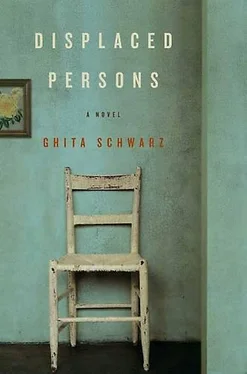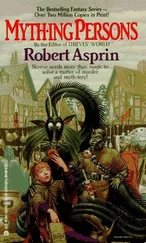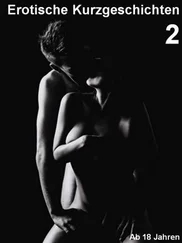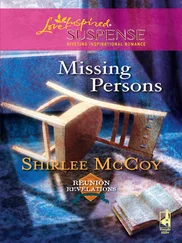He managed a word: No. But as Pavel said it he realized he had already known, known on his way out of the kitchen this morning, belly warmed with sweet coffee, knew on his way up the stairs, as he’d looked at the calm face of Yidl’s secretary, as he’d sat down in Yidl’s wooden chair. He had already known when he left the jail yesterday, when Kresser had smiled, so lightly, as Pavel turned on his way out the door. Still Pavel said, No. Impossible.
Yes, said Yidl. He did. In the end we were spared. Now there will be no trial after all.
The committee would arrange for the burial. Would Pavel come? Of course, Pavel said, of course. But he wanted to go in his own car. He could not, he would not engage in the politics, the committee talk that would scatter in and out on the hour-long drive to Bremen.
I will join you, he said. But I first-I had an appointment, I did not expect-
Marek waited for him in the entryway of the Roundhouse office. He shrugged as Pavel changed the directions; they would go to Bremen, make their plans on the road there.
Pavel, you are upset, said Marek. Let me drive. You have the money?
Of course I have the money. Pavel frowned. Sewn inside. I’ll show you when we get there.
It was true, Pavel was too agitated to drive. He slipped into the passenger seat and gave Marek the key. The noise of the motor soothed him. Perhaps Marek would not expect Pavel to speak right away. He had surprised himself the day before with his ability to speak even a few words to Kresser. Speak, speak, Yidl had urged him as they had walked into the American jail. But Yidl was completely without inhibition about speaking. He could recite the most painful events, horrors about which no one wanted to hear, not the victorious armies, certainly not the vanquished. He could speak with great eloquence if not detail. Yidl would transform this terrible thing, this Kresser death, into a fable, a morality tale, or better, into a tiny, invisible item in the camp news, to be read only in Yiddish by refugees.
He hanged himself. Pavel heard and reheard Yidl’s rushed words: He hanged himself.
Once Kresser had almost killed Pavel. And now Pavel had had a hand, perhaps not a hand, but a push, a light push, in Kresser’s end. One more death. Did it matter? And what a one! A criminal, a piece of human dirt, refuse.
But also a man, a criminal man. He was surprised at his own shock and horror: that a man could die like this, and that Pavel could think on it and think on it. His own wife’s miscarriages had been less strange-more painful, more grievous, but less strange. It was odd, unfamiliar: the death of one man, alone in a cell, meant something. One death meant something important.
Yes, it was a new time he was in, a new time, if he could think on one death. Death would continue, but it would be individual and strange, mourned. Kresser would have his own grave, and men would cover his coffin with dirt.
Funny. Pavel would know where Kresser was buried, but not the site of the body of his own father. His father had always said he would not allow himself to be gassed, he would be shot first, he would force them to shoot him, and Pavel hoped he had had his wish. But many had pledged this to themselves and then held on to the last shreds of hope that what they knew would happen could not happen. But his father, so stubborn, so rigid, surely he had gotten his wish-
Very difficult, said Marek.
Hmm? said Pavel.
The rain makes it difficult to see.
Pavel looked over at the steering wheel, the hands of Marek, thick and dry. He thought suddenly of a young boy he had recently hired to act as a messenger for him, a German boy, with pale, delicate fingers. Not a rural one. And young-too young to have been in the army. Clean hands, perhaps. A quick rage flew through Pavel, rage at this boy, who surely would know where his parents were buried. Pavel had asked-for no reason, it had just fallen out of his mouth-where the boy’s parents were, and the young man had answered. He felt his forehead steaming, and he leaned against the car window. What had the boy answered? Father is wounded, he sits at home. Mother, she-
The boy had continued talking, but Pavel did not remember what he had said. He had not wanted to know what this German boy’s mother did to help them scrape for food. Where was Pavel’s mother? Buried, thank God, buried, for this they were lucky, but the graveyards-he had heard that the Jewish cemetery in Krakow was a great rubble, the wall and stones crushed. He had a sudden vision of his mother’s grave as it had been when he last saw it, steady and whole. The urge seized him, coursed through him like water-he would go before leaving for America. He had been to Berlin, to the Russian zone, when he heard that his aunt, his mother’s youngest sister, had survived, come back from Russia to take a job with the Communists, he had surprised her and she almost fainted-why had he not gone to Poland to see the grave?
Kresser would have a grave. Perhaps not a completely right burial-it would be hard to find a rabbi to bury a suicide, not to say a criminal, an accomplice to murderers-but a grave, his own dark space. And a group of men saying Kaddish, a tainted Kaddish, to be sure, but a Kaddish.
This man would have a grave. How strange, how strange, that a man with a hand in others’ deaths would survive to die, to take his own life and rest alone, with a private coffin and a private grave. This man, of all men, would have a grave.
The car made a quick swerve. Pavel’s side of the car almost collided with a barrier. Marek! he said.
Ay, said Marek. This road hasn’t been the same since the bridge was rebuilt-
So drive more slowly, answered Pavel.
Early on in the war Perla’s father had stopped Pavel from certain suicide. Pavel had met him only once, having been pulled into a minyan against his will, he was hiding-when the police had broken in and taken several of the men. Pavel had jumped out a window. Then they threatened to kill all of them-this was at the start of it, when they still threatened first-unless Pavel turned himself in, and Perla’s father had stopped him. Miloch, the father had begged. Miloch, you have everything to live for. An enormous bribe had been paid, and all but one of the men had been freed, although what happened to them later-and of course the one man, Weil-how by chance it all was-and no doubt Perla’s father himself was long since ash-but Pavel’s choice, Miloch’s choice, had been different, Kresser’s soul had been sick-
Marek made a quick turn, swinging the car on Pavel’s side centimeters from a lamppost.
Marek! Pavel said again, suddenly present. You are always a good driver! What is it now?
Perhaps something is wrong with the car, said Marek, not looking at him. I don’t feel I have control over the steering.
It was in order this morning when I drove it. Pavel peered through the fog of the window at the hammering rain. It was still morning, but the sky was a night sky, gray as charcoal, striped with flashing light.
It really is hard to see, protested Marek.
Something in his voice scratched at Pavel. A tickle of doubt. But there were lights coming up, coming closer.
A train station, said Pavel. We’ll stop there and I’ll drive. I do not know what is wrong with you.
Another swerve, a shouted curse from someone-was it his own voice?-and his body twisting and spinning.
IN CAMP, TIME HAD passed in anguished routine, the morning roll call, the distribution of bread, the march to work, the evening roll call, repeated and repeated, the routine interrupted only by violent incidents of the day, by waves of sickness in the barracks, by the arrival of a new transport, by selections, by the liquidation of one camp and the miserable journey to the next. Now, again, he was in another place where time passed but did not pass, he saw things in a fog of pain, not the fever pain of typhus, not the pain of a beating, but a pain so long, so deep in his bones that it became his body, the soul of his body, radiating from his shattered leg to his jaw, carving through his abdomen and back when they lifted him to feed him juice through a straw, a pain interrupted only by the injections of morphine he received every few hours, the doctors speaking quietly to the nurses, never to him, the tiny young nun turning him over and emptying his bedpan. Once he thought he saw Chaim, standing at the doorway, but awaking knew he was gone, the light-haired man must have been-who could it have been? The way Pavel knew to mark time passing was by the appearances of Fela, who, the first day he was conscious of seeing her, looked large, swollen, like the woman he had met almost five years before, malnourished, bloated, in mourning and beautiful.
Читать дальше











